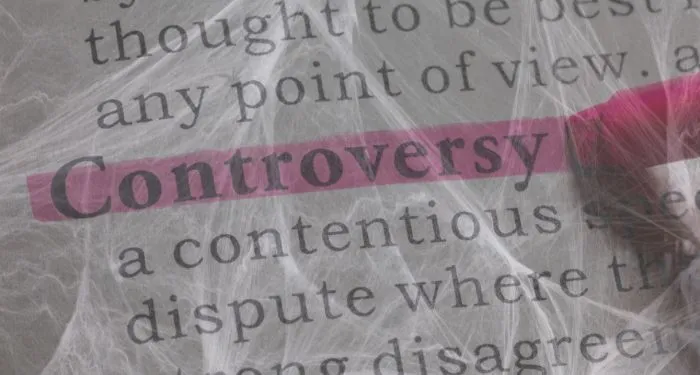From a False Arrest to a Political Awakening: My Journey to Making a Difference
How a false arrest sparked a political awakening for US Senate candidate Dakarai Larriett.
What would you do if you were arrested for a crime you didn’t commit—despite passing every test and proving your innocence?
In Don’t Flush!, activist and Senate candidate Dakarai Larriett recounts the harrowing night in April 2024 when he was wrongfully arrested in Michigan for suspected DUI. Despite testing negative and showing no signs of impairment, he was jailed, humiliated, and thrust into the unforgiving machinery of systemic injustice.
This gripping memoir not only exposes the cracks in our legal and policing systems but also shows the power of one voice refusing to stay silent. Larriett’s $10 million lawsuit against the Michigan State Police, his media campaign fueled by FOIA-released footage, and his push for legislative reform—including a Motorist Bill of Rights and the end of qualified immunity—paint a picture of a man turning trauma into action.
Don’t Flush! is more than a personal story—it’s a rallying cry. Whether you're an ally, advocate, or just waking up to these injustices, this book demands you do more. Read it. Share it. Join the movement for true accountability.
Amazon Author's Website Author's Amazon Page
Excerpt from Don’t Flush! © Copyright 2025 Dakarai Larriett
1: THE FLASHING LIGHTS
The night air was cool against my skin as I drove through the darkened streets of Benton Harbor, Michigan. It was April 10, 2024, and the clock on my dashboard read 3:02 a.m. The familiar purr of the engine and the soft glow of the instrument panel created a soothing backdrop while my friend Tae sat beside me in the passenger seat. We’d just wrapped up a great night together, and though we weren’t saying much now, his quiet presence was comforting. My thoughts drifted between the warmth of the evening and the creeping fatigue—home, and the comfort of my bed, still fifteen minutes away.
The streets were nearly empty, creating an illusion of solitude that almost made me forget where I was—almost. But as a Black person in America, you never truly forget.
That awareness clings like a shadow—silent but never absent. It moves with you through your daily life at work, in stores, at restaurants, but it grows sharper at night, on empty roads, when it’s just you and whoever might see you. My cousin called it “the sixth sense,” that extra awareness that makes you check your speed even when you’re not in a rush, that makes you rehearse what you’ll say if stopped, that keeps your insurance card and registration always in the same easy-to-reach spot. Not fear, she’d insist. Just wisdom, hard-earned and passed down. “Smart men learn from their mistakes,” she would tell me. “Wise men learn from the mistakes of others.”
Even in moments of apparent peace, there’s always that quiet voice in the back of your mind, the one that carries generations of wisdom and warning. It’s not paranoia; it’s survival instinct, honed through centuries of collective experience.
I adjusted the temperature control, letting the warm air chase away the chill of the Michigan spring. The radio played softly in the background—some late-night jazz program that seemed to match the rhythm of the empty streets perfectly.
The traffic light ahead on Pipestone Road glowed red against the darkness, its reflection creating crimson pools on my hood. I eased to a stop, my foot gentle on the brake, my movements measured and precise. Years of conditioning had taught me to be extra careful during late-night drives. Every traffic law followed to the letter, every movement deliberate and documented by muscle memory. The ritual had become so normal to me that I hardly noticed I was doing it. Each stop sign meant a full three-second pause, each turn signal clicked on with plenty of notice, each speed limit obeyed to the exact number on the sign. My non-Black friends used to joke about how I drove like an old man until they understood why. Some lessons cost too much to ignore.
The streetlights cast long shadows across the empty sidewalks, their orange glow creating pockets of visibility that seemed to pulse with each passing cloud. A homeless man pushed his cart along the edge of a closed convenience store, the wheels squeaking against the concrete, echoing my unease. I watched him disappear into the shadows, wondering if he felt the same hyperawareness that I did, that constant need to calculate how others might perceive his presence in the night.
That’s when I saw them—the flashing lights in my rearview mirror, blue and red strobes shattering the night’s tranquility. My heart rate picked up instantly, not from guilt but from that inherited knowledge, that bone-deep understanding that even the most routine traffic stop could become dangerous in an instant. The lights grew brighter, more insistent, their rhythm matching the quickening beat of my pulse.
I took a deep breath, forcing myself to stay calm. My hands tightened slightly on the steering wheel as I carefully signaled and pulled into the alley leading to Tae’s house, making sure to stop in a well-lit area of the otherwise dark alley. Years of “the talk”—not just one conversation but a continuing education in survival—ran through my mind like a well-rehearsed script.
Keep your hands visible. Don’t make any sudden movements. Speak clearly and respectfully, no matter what happens. Stay calm, stay alive.
As I put the car in park and turned down the radio, my mind drifted unbidden to the story my grandparents had told me countless times, a story that had become as much a part of me as my memories.
The night folded around them like a shroud, thick and oppressive. Birmingham in 1957 was not just a place—it was a battleground where silence spoke louder than words.
My grandparents never spoke of that night easily. The memories lived in their eyes, in the way my grandfather’s hand would sometimes tremble when he reached for a glass of water, in the quiet tension that would fill the room when someone mentioned the South before the changes.
They were young then. Not much more than children playing at being adults, their love fresh and defiant in a world designed to crush such beauty. The drive-in music played low and soft, a gentle backdrop to the terror that was about to unfold.
The cross burned bright against the Alabama night.
The flames reached skyward like fingers grasping at stars, orange and yellow against the pitch-black sky. Each crack and pop of the burning wood echoed across the empty field, a sound that would stay with my grandparents for decades to come. The smell was what my grandmother remembered most. Not just burning wood, but something else mixed in, something chemical that made the smoke hang heavy in the air. She said later that it smelled like hate itself had a scent. Around the cross stood the men in their white robes, faceless behind their hoods, some holding torches that cast wild shadows across the ground. Cars had pulled to the side of the road—some out of fear, others out of dark fascination, all forced to stop by the Klansmen’s barricade across the highway, their torches and hooded figures demanding compliance. My grandparents’ car idled, the engine’s soft rumble a stark contrast to the harsh sounds of the scene before them.

My profession is online marketing and development (10+ years experience), check my latest mobile app called Upcoming or my Chrome extensions for ChatGPT. But my real passion is reading books both fiction and non-fiction. I have several favorite authors like James Redfield or Daniel Keyes. If I read a book I always want to find the best part of it, every book has its unique value.




















 English (US) ·
English (US) ·